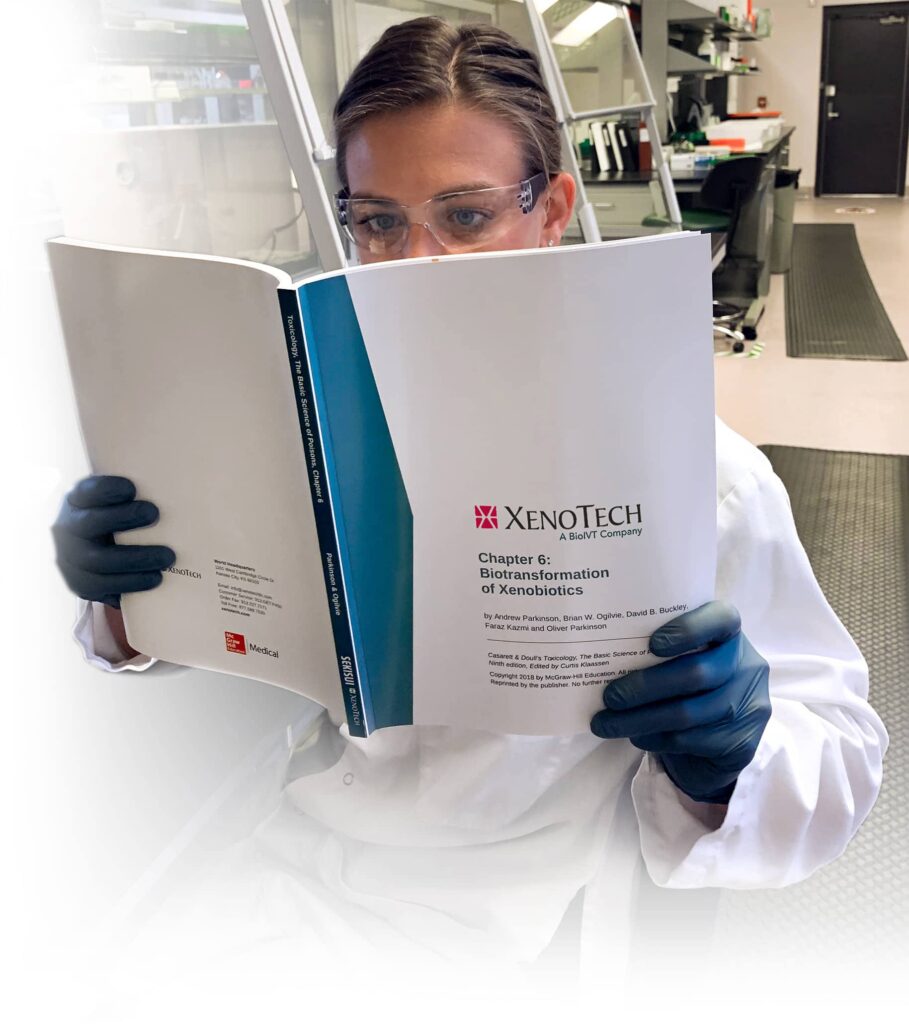
Red Blood Cell Partitioning Studies to Improve Accuracy in Pharmacokinetics (PK) Calculations
Presenter: Steven McGreal, Ph.D, Study Director at XenoTech
Abstract:
Pharmacokinetic (PK) parameters of a new drug candidate are typically determined by measuring the drug’s concentration in plasma. However, many drugs have the potential to bind to or diffuse into red blood cells (RBCs), and because RBCs comprise at least 99% of cellular space in blood, this binding potential could significantly impact drug clearance and cause inaccuracies in PK calculations.
Usually, pharmacokinetic parameters are determined by measuring drug concentration in plasma at successive time points, as opposed to measuring the drug concentration in whole blood. However, failing to take into account the potential for a drug to sequester into red blood cells may lead to a misinterpretation of pharmacokinetic data and provide an overestimation of drug’s clearance. For example, certain compounds such as chloroquine are sequestered into red blood cells, thereby causing them to have a blood to plasma ratio that is greater than 1. This illustrates the importance of accounting for the amount of drug potentially sequestered into red blood cells, in addition to the extent of plasma protein binding, when trying to determine the true amount of free unbound drug available in the plasma (fu_plasma).
Red Blood Cell Partitioning is the most recent addition to our service offerings at XenoTech. Prior to this year, this service was only available through our partners.
The assay is designed to determine the blood to plasma ratio of your drug at three concentrations, provide red blood cell distribution percentage, and measure stability. Between our partners and primary lab in Kansas City, we can work with whole blood from human donors and preclinical animal species including rat, mouse, dog, monkey, rabbit, and miniature pig.
In this webinar, XenoTech study director Dr. Steven McGreal will cover study design elements and other considerations like timing and characteristics of drugs with high RBC partitioning. He will discuss impacts on PK calculations and provide examples of how RBC partitioning rates can cause errors downstream if not properly investigated early in drug development. The webinar will conclude with a live Q&A session with webinar participants.
Both Red Blood Cell Partitioning and Plasma Protein Binding studies are available from our partners, as well, for international customers who prefer to work with a closer lab.
Key concepts discussed in this webinar will include:
- Red Blood Cell Partitioning background & mechanism
- Drug characteristics affected by RBC transfer, including intrinsic clearance (CLint) and exposure (AUC)
- Standard study design
- Supporting information sponsors could supply to improve results
- Impact on PK calculations
About the Presenter:
Dr. Steven McGreal received his Ph.D. in Toxicology from the University of Kansas Medical Center in 2017 and later that year joined XenoTech. Dr. McGreal is a Senior Scientist in the Contract Services division, serving as Study Director for nonclinical studies including drug metabolism, enzyme induction, and enzyme inhibition. He is also responsible for review and interpretation of data, communicating results to sponsors, and responding to Quality Assurance audits. Dr. McGreal is a published author on six peer-reviewed studies and is trained to meet compliance standards of Good Laboratory Practices (GLP) Organization for Economic Co-operation and Development (OECD) Principles of GLP, and/or Japan Ministry of Health and Welfare (MOHW) Good Laboratory Practice Standards (Ordinance No. 21, March 26, 1997).
